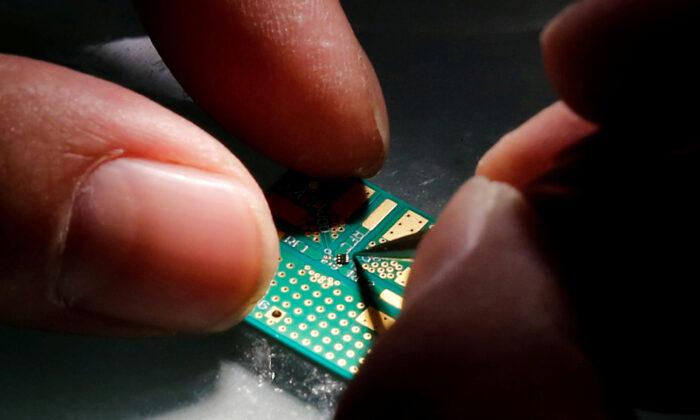SHANGHAI—The Chinese Semiconductor Industry Association (CSIA), a major trade association for China’s chip industry, will establish a working group with its U.S-based counterpart, the organization announced on Thursday.
The CSIA said in its post it would form a joint working group with Washington-based Semiconductor Industry Association (SIA), with each side being represented by 10 chip companies.
The working group will meet twice a year to discuss issues such as intellectual property, trade policy, and encryption.
The date of the first meeting and the companies involved were not specified.
The SIA did not respond to a request for comment. The website of the SIA made no mention of the working group.
China is the world’s largest purchaser of semiconductors. Its domestic production of chips is marginal.
Beijing has long been urging local governments and private enterprises to invest in the domestic chip industry, which has long lagged behind those of the United States, Japan, and Korea.
In the previous decade, the government set a goal to produce 40 percent of the chips it consumes by the year 2020. But analysts say it has missed that target by far.
According to research firm ICInsights, of the $143 billion in chips sold in China in 2020, only $8.3 billion was produced by Chinese-headquartered companies. Foreign companies produced $22.7 billion worth of chips from their China-based operations.
China’s need to reduce its dependence on overseas chip companies came to light in 2020 when U.S. sanctions imposed on Shenzhen-based hardware maker Huawei Technologies Co. Ltd prevented it from sourcing components, crippling its once-booming smartphone business.
Meanwhile, both countries find themselves navigating through a global chip shortage, which has rattled the electronics industry as various automobile, smartphone, and gadget makers scramble to get components for production.





